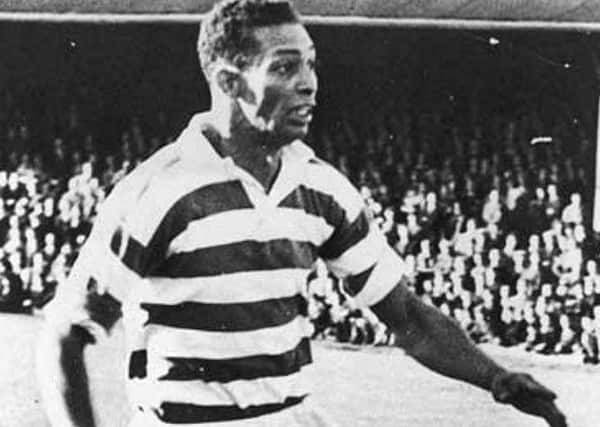Rap pioneer's father was a Celtic hero and club's first black footballer
This article contains affiliate links. We may earn a small commission on items purchased through this article, but that does not affect our editorial judgement.


When Gil Scott-Heron passed away in 2011, he left behind quite a legacy.
A master of jazz, blues, soul, and spoken-word performance, and an activist during the Civil Rights movement, Scott-Heron is also widely regarded as “the Godfather of rap”.
Advertisement
Hide AdAdvertisement
Hide AdThe response to Gil’s untimely death at the age of just 62 was huge. Leading figures from across the entire spectrum of rap and hip hop were not shy in citing the Chicago-born artist as being a heavy influence on their work.
It is rather extraordinary, then, to discover the remarkable story of Scott-Heron’s father, Gil Heron; a trailblazer in the most unlikely of places – the Scottish Football League.
Born in Kingston, Jamaica, Gil Heron, dubbed the ‘Black Arrow’ on account of his lighting pace, joined Celtic as a striker in 1951 after a largely-successful spell in the United States.
29-year-old Heron had been scouted by Celtic while in America and quickly impressed during a trial game at Parkhead, scoring twice. Manager, Jimmy McGrory, was quick to award the 6ft-tall forward a contract.
As the 1951/52 season kicked-off, Celtic’s new signing made an immediate impact, scoring on his debut in a 2-0 League Cup tie against Morton in front of 40,000 at Celtic Park on 18 August 1951.
In addition to making the score sheet, Gil Heron had made history as the first ever black player to wear the green and white hoops of Celtic. Official club records appear to back up this claim.
Off the field, fans were also impressed by Heron’s super-slick Caribbean dress style, consisting of sharp, tailored suits and trilby hats.
Despite an impressive start, Heron’s Celtic career was short-lived. The striker managed a year in the East End of Glasgow, scoring two goals, before transferring to Third Lanark.
Advertisement
Hide AdAdvertisement
Hide AdHeron later returned to the United States, playing out the remainder of his football career with Detroit Corinthians.
Upon his father’s death in 2008, Gil Scott-Heron revealed that his dad had always looked out for Celtic’s results.
DOWNLOAD THE SCOTSMAN APP ON ITUNES OR GOOGLE PLAY